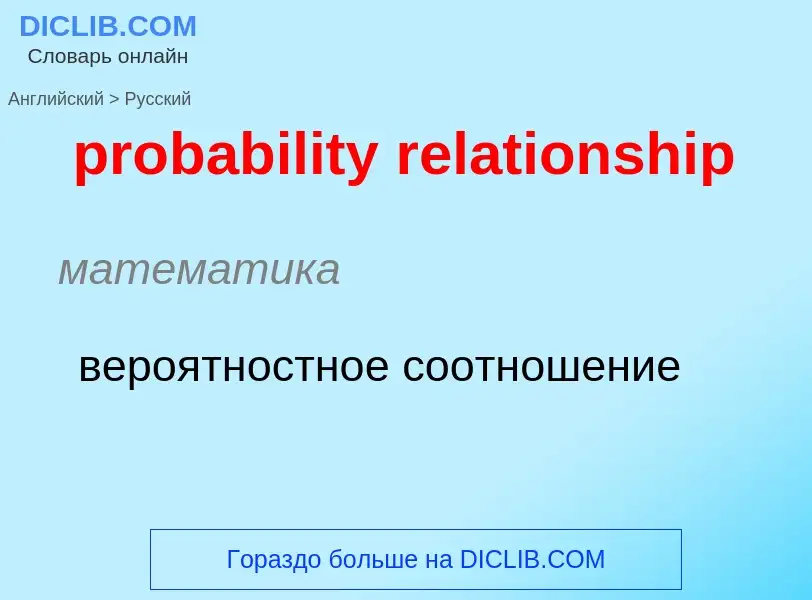Übersetzung und Analyse von Wörtern durch künstliche Intelligenz ChatGPT
Auf dieser Seite erhalten Sie eine detaillierte Analyse eines Wortes oder einer Phrase mithilfe der besten heute verfügbaren Technologie der künstlichen Intelligenz:
- wie das Wort verwendet wird
- Häufigkeit der Nutzung
- es wird häufiger in mündlicher oder schriftlicher Rede verwendet
- Wortübersetzungsoptionen
- Anwendungsbeispiele (mehrere Phrasen mit Übersetzung)
- Etymologie
probability relationship - Übersetzung nach russisch
математика
вероятностное соотношение
[imprɔbə'biliti]
существительное
общая лексика
невероятность
неправдоподобие
невероятность, неправдоподобие
[prɔbəbə'listik]
общая лексика
вероятностный
прилагательное
общая лексика
вероятный, вытекающий из теории вероятностей
существительное
общая лексика
вероятный
вытекающий из теории вероятностей
религия
пробабилистичный
Wikipedia
In mathematics, a probability measure is a real-valued function defined on a set of events in a probability space that satisfies measure properties such as countable additivity. The difference between a probability measure and the more general notion of measure (which includes concepts like area or volume) is that a probability measure must assign value 1 to the entire probability space.
Intuitively, the additivity property says that the probability assigned to the union of two disjoint events by the measure should be the sum of the probabilities of the events; for example, the value assigned to "1 or 2" in a throw of a dice should be the sum of the values assigned to "1" and "2".
Probability measures have applications in diverse fields, from physics to finance and biology.

![0-521-62128-3}} [https://books.google.com/books?id=Q1AUhivGmyUC&pg=PA149 page 149]</ref> 0-521-62128-3}} [https://books.google.com/books?id=Q1AUhivGmyUC&pg=PA149 page 149]</ref>](https://commons.wikimedia.org/wiki/Special:FilePath/Maxwell-Distr.png?width=200)
